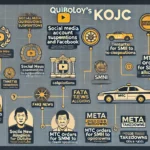LAST month, more than a thousand leaders from the Bank of the Philippine Islands (BPI) gathered for the Elite (Empowering Leaders, Inspiring Transformational Excellence) Summit 2024. This landmark event, designed to foster innovation and a growth mindset, adopted a dynamic talk show format that captivated its audience.
The summit featured renowned organizational psychologist and author Adam Grant, who emphasized the transformative power of learning from setbacks and failures. Grant emphasized the importance of viewing setbacks and failures as opportunities for growth. He argued that embracing these experiences can lead to greater resilience and innovation within organizations.
He highlighted the significance of adopting a growth mindset, where challenges are seen as chances to learn and improve rather than as insurmountable obstacles. This mindset encourages continuous development and adaptability.
Grant discussed the concept of psychological safety in the workplace, where employees feel safe to take risks and express their ideas without fear of negative consequences. This environment fosters creativity and collaboration.
He encouraged leaders to constantly re-evaluate their assumptions and be open to new perspectives. This approach can lead to more effective problem-solving and innovative solutions. Grant also touched on the benefits of a giving culture within organizations. He suggested that leaders who support and help their teams can create a more engaged and motivated workforce.
Azran Osman-Rani, the trailblazing chief executive officer (CEO) of AirAsia X, also shared his experiences on how smart adaptations of proven concepts, keen observations, and a deep understanding of customer needs can drive groundbreaking changes. Osman-Rani was instrumental in developing the long-haul, low-cost airline model. Under his leadership, Air Asia X grew from a startup to a company with other $1 billion in revenue and 2,500 employees within 6 years. This model broke many industry conventions and introduced new ways to offer affordable long-haul flights. His presentation underscored the importance of agility and customer-centric strategies in today’s fast-paced business environment.
Adding a unique perspective, Jason Lai, the lead conductor at Yong Siew Toh Conservatory of the National University of Singapore, drew compelling parallels between leading an orchestra and managing a corporate team. He highlighted the critical roles of clear communication, emotional intelligence, and unified efforts in achieving organizational harmony and success.
Here are some very interesting takeaways from Lai’s talk:
-Just as a conductor must clearly communicate their vision to the orchestra, corporate leaders need to articulate their goals and expectations to their teams. Effective communication ensures that everyone is aligned and working towards the same objectives.
-Conductors must be attuned to the emotions and dynamics of their musicians to bring out the best performance. Similarly, corporate leaders need to understand and manage their team’s emotions, fostering a supportive and motivating environment.
-An orchestra’s success depends on the collective effort of all its members, each playing their part in harmony. In a corporate setting, achieving organizational goals requires the unified efforts of all team members, working together seamlessly.
-Conductors often need to make quick decisions and adapt to changes during a performance. This agility is equally important in the corporate world, where leaders must be able to pivot and respond to new challenges and opportunities.
-Trust is essential in both an orchestra and a corporate team. Conductors build trust by respecting their musicians’ expertise and encouraging collaboration. Corporate leaders can foster a similar environment by valuing their team’s contributions and promoting teamwork.
-A conductor’s body language and presence can significantly influence the orchestra’s performance. Likewise, corporate leaders can use body language and presence to inspire confidence and convey authority.
The summit’s innovative breakout sessions, dubbed “solution rooms,” provided a hands-on approach to tackling pressing leadership challenges. These sessions addressed a range of topics, including multigenerational leadership, well-being, data-drivendecision-making, and customer obsession, offering practical solutions and fostering collaborative problem-solving.
The event culminated in an inspiring speech by BPI President and CEO TG Limcaoco. His address instilled a sense of optimism and determination among the top executives, motivating them to steer BPI towards a future marked by growth and innovation.
The Elite Summit 2024 not only showcased the power of visionary leadership but also reinforced BPI’s commitment to fostering a culture of continuous improvement and excellence. As the bank’s leaders return to their roles, they carry with them renewed energy and a shared vision for a transformative future.



